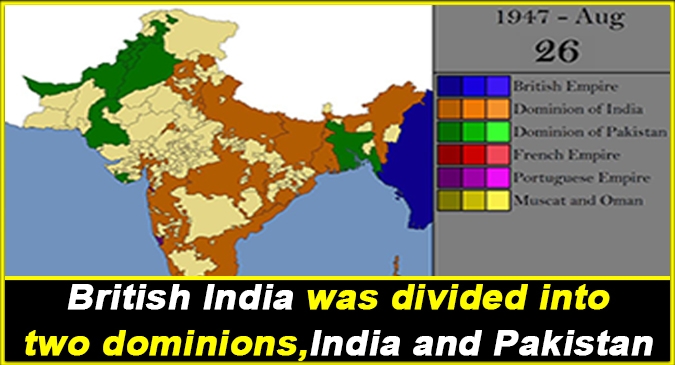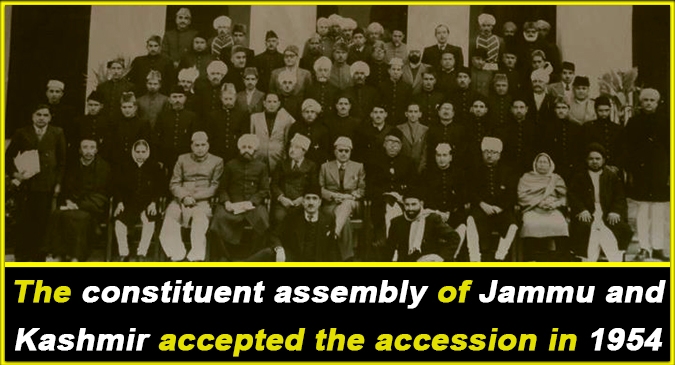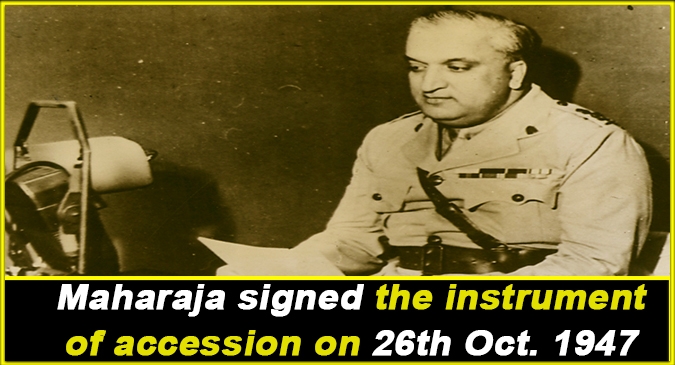Democracy and plebiscite: A false narrative in J&K
| 15-Oct-2018 |

Author and Date – Team JK Now
India attained independence in 1947 from the shackles of British subjugation. Simultaneously British India was divided into two dominions and a new country called Pakistan was born. The new country came into being because of the persistent demand for a separate nation exclusively for Muslims. It is important to note here that the demand was raised by a few and they subsequently brainwashed the innocent people to create the ghost of communalism and cropped up the theory of two nations. Finally, the two-nation theory was implemented and accordingly a new country, Pakistan was born. But in this entire episode the question of plebiscite was never raised. Going further in the modern history of India, one can find that the people exercised their right to vote to choose their representatives, who become their voice at the national and international arenas and brought forth their own issue.

India is a democratic country and it always believed in keeping up the democratic principles and the same could be found even when the princely states had to accede to it. Like any princely state this democratic procedure was adopted by the then Government of India in the matter of Jammu and Kashmir also. And the same was observed when the constituent assembly of Jammu and Kashmir accepted the accession in 1954.. It is worth noting here that India went to UN to complain against the aggression of Pakistan and not for the dispute of accession. After hearing both the side the following resolution was passed in the UN:
1- An immediate cease fire,
2- The Pakistani army must withdraw from the territories of India
3- The opinion of the people shall be gathered through a plebiscite.
Though the plebiscite was not required, as the accession was legally correct and complete, yet India was ready to do it provided that the first two conditions should be met. As the first two conditions were not fulfilled, Pakistan never vacated the territory of Jammu Kashmir and areas of the State which are known as Pakistan Occupied Jammu Kashmir is under illegal occupation of Pakistan. So, the third condition i.e. plebiscite was not required. Presently, the myth of plebiscite is still alive because of some opportunists and Pakistani sympathisers.

It is a well known fact that Maharaja signed the instrument of accession in favour of India on 26th October 1947 which made the residents of Jammu and Kashmir the citizen of the largest democracy. The residents of the state were already going through the difficult times, as it was bearing the brunt of Pakistani invasion. From 26th October, 1947 onwards, the residents of the state had become the citizen of India and India was thus morally obliged to save their lives. India was always in favour of peace and peaceful solutions of the problem. It went to UN to complaint against Pakistan, as India was not willing to go for an all-out war with Pakistan. India was expecting that she would get what rightfully belongs to her. But Pakistan played its trick and the question of aggression was converted to the question of plebiscite.
Unfortunately, UN was unable to understand that people of the state would not accept a country which is butchering the people mercilessly and robbed them of everything they had. Still the Indian government agreed to the plebiscite. The UN clearly stated that the ongoing fight must be desisted and Pakistan must evacuate the territory which it has illegally occupied, so that free and fair plebiscite could be conducted. But the UN did not do enough to ensure that its instructions are fully complied with by Pakistan and thus the third requirement, which was hinging upon the fulfilment of the first two, was never fulfilled. Unfortunately, the separatists and the Pakistani sympathisers never told this truth to the gullible Kashmiri people and kept propagating the false information to fulfil their separatist agenda. Therefore, it is essential that the real truth on plebiscite must be brought in the public domain and people must understand the reality of the Kashmir.